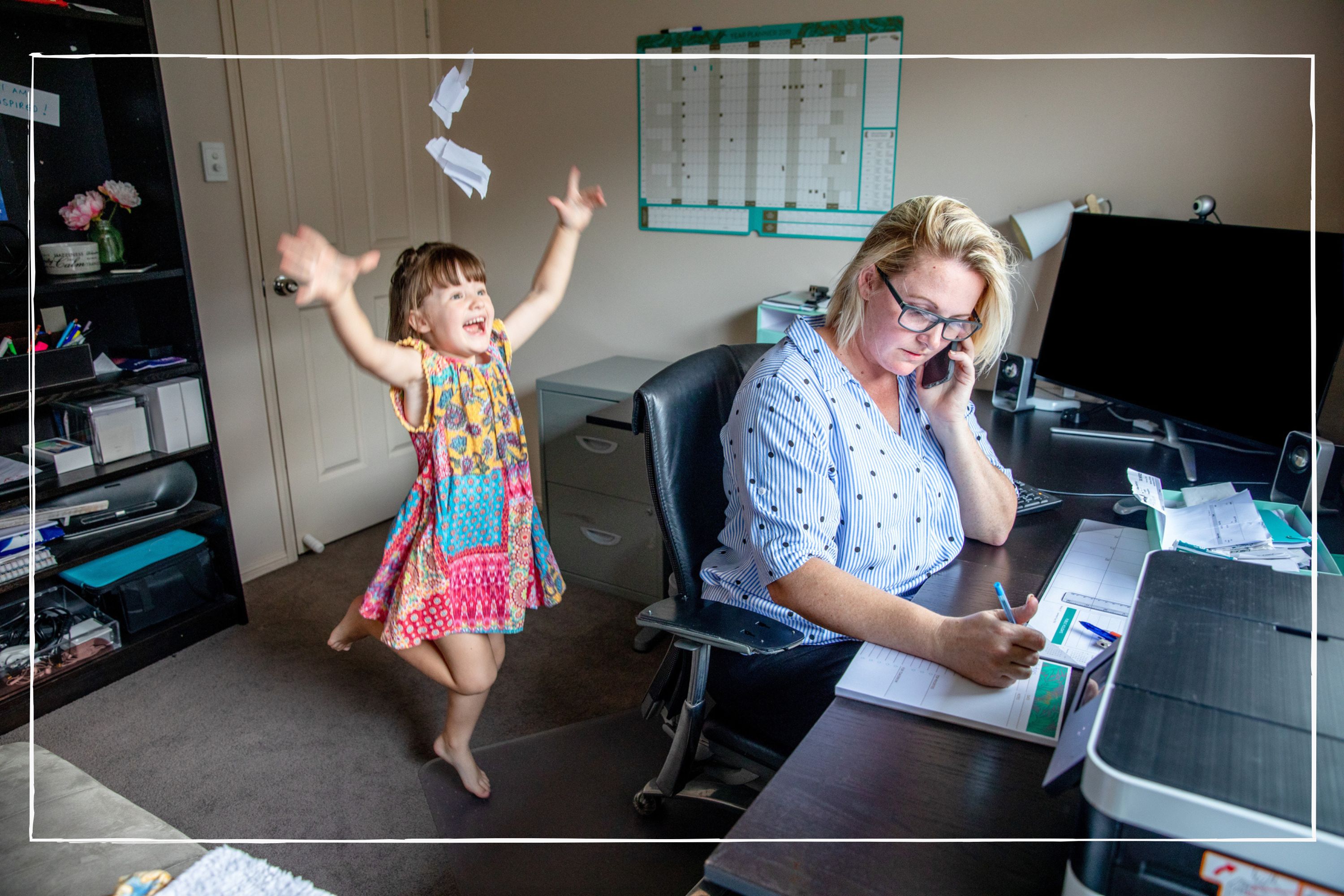What are the average childcare costs in the UK in 2025?
Average childcare costs are rising in the UK, making it crucial for working parents to understand their different childcare options

Average childcare costs in the UK have gone up yet again, putting even more pressure on already stretched household budgets. It all adds to parents concerns about how much it costs to raise a child. According to the latest Childcare Survey 2024 report by Coram Family & Childcare, the average price of a part-time nursery place for a child under two has risen by 7.4% in the last 12 months.
CEO and co-founder at private pension provider Penfold, Pete Hykin, told us: “Childcare costs are becoming increasingly unaffordable for many households, and this is putting significant pressure on family budgets. The high cost of living, coupled with the rising cost of childcare, is leaving many families struggling to make ends meet.”
While many parents will be entitled to child benefit to help with the cost of raising their children, high childcare costs are still leaving mothers weighing up whether it's financially worth returning to work after having a baby, and even whether they are able to expand their family.
To help parents manage the cost of childcare, in 2023 the government announced a phased expansion of the free childcare system, which would mean that by September 2025, all eligible parents would be able to get 30 hours free childcare for their child from the age of nine months. However, major concerns over whether there is enough childcare providers to meet the demand are rife, and it remains to be see if the government can deliver its pledge.
What are the average childcare costs in the UK?
The latest Childcare Survey from Coram Family and Childcare shows that the cost of full-time childcare for children under two has risen by 5.9% over the past year, from £285.31 per week in 2023, to £302.10 in 2024, making the cost unmanageable for many families. The availability of childcare places has also dropped.
Ultimately, the average childcare costs in the UK depend on the type of childcare you choose. Here we compare the average costs of the most popular childcare options - nursery and childminders. These costs are based on childcare for 48 weeks per year.
| Header Cell - Column 0 | Typical cost per week | Typical cost per year |
|---|---|---|
| Part time (25 hours) nursery for child under 2 | £157.68 | £7,569 |
| Part time (25 hours) childminder for child under 2 | £130.49 | £6,264 |
| Full time (50 hours) nursery nursery for child under 2 | £302.10 | £14,500 |
| Full time (50 hours) childminder for child under 2 | £253.02 | £12,145 |
| Part time (25 hours) nursery for two year olds | £151.72 | £7,283 |
| Part time (25 hours) childminder for two year olds | £131.52 | £6,313 |
| Full time (50 hours) nursery for two year olds | £288.13 | £13,830 |
| Full time (50 hours) childminder for two year olds | £253.97 | £12,191 |
SOURCE: Coram Family and Childcare
Parenting advice, hot topics, best buys and family finance tips delivered straight to your inbox.

Nursery
A popular option for childcare is nursery. When it comes to how much nursery costs, according to Coram’s 2024 Childcare Survey, nursery fees for under 2s have risen by 7.4% for a part-time place (25 hours), rising from £148.63 a week or £7,134 a year in 2023, to £157.68 per week, or £7,569 per year in 2024.
When children turn two, these costs drop to £151.72 per week or £7,283 per year. But as of April 2024, the first phase of the free childcare expansion comes into effect, with working parents of two year olds eligible for 15 hours free childcare.
Childminder
Parents can opt to use a childminder instead of nursery where, like a nanny, they have the responsibility of picking the children up or dropping them off at their different settings. However, childminders would take your child or children back to their own home and work on a self-employed basis.
The average cost of a childminder is £130.49 a week (on a part-time basis) for children under two (up from £125.91 in 2023), or £131.52 a week for two-year-olds (up from £126.59 in 2023), according to Coram Family and Childcare.

Is a childminder cheaper than nursery?
On average, a childminder is cheaper than nursery, but the cost ultimately depends on where you live and the hours of childcare you need.
According to Coram Family and Childcare, a childminder costs, on average, between £130.49 and £253.97 a week (depending on the age of your child and whether they are full time or part time). This equates to between £6,264 and £12,191 per year. Nurseries on the other hand, on average, costs between £157.68 and £302.10 per week, which equates to between £7.569 and £14,500 per year.
Some childminders may offer a discount if they are caring for more than one of your children. Yet you may find that childminders charge more if you live in an area where there’s high demand. Crunch the numbers once you’ve got prices for your area and see what’s most cost-effective and what works best for the family.
Childcare costs for older children
Once children are at school, life can be easier for parents. Though there’s still a gap between when school finishes and the end of the working day. Schools typically offer after-school clubs which differ in length and cost.
According to Coram Family and Childcare, the average weekly price for families using an after-school club for five days a week is £69.14 a week (up from £67.42 in 2023), or £2,697 a year. Alternatively, the average cost of a childminder until 6pm is £75.87 a week, which equates to £2,959 a year. While the school option is cheaper, clubs might not run as late as 6pm, so it still might be necessary to use a childminder to fit in with working hours.
| Header Cell - Column 0 | Cost per week |
|---|---|
| After-school club | £69.14 |
| Childminder | £75.87 |
SOURCE: Coram Family and Childcare
What’s the cheapest childcare option?
There’s no one-size-fits-all cheapest option with childcare because every family will need their children cared for on different days and for varying numbers of hours. You’ll need to crunch the numbers carefully for the different options – nurseries, local childminders, even a nanny at home – to see which one works best for you.
Parenting expert Melissa Agyei says: “Consider your work schedule, commute time, and other factors that might affect your childcare needs. This will help you figure out what option will work best for you and your family.” The ages of your children will make a difference too as this will impact on the overall cost as some children might qualify for some hours of free childcare. To find childcare near you and compare prices, use the Coram Family and Childcare finder tool.
It’s worth bearing in mind that the best cost-effective nurseries often get snapped up fast, so try to have your child on a waiting list as soon as you can.

Families expert Melissa Agyei also suggests visiting different childcare providers to see what the environment, staff and facilities are like. “Don't be afraid to ask questions about their qualifications and experience,” she says. “Every child is different, so it's important to think about your child's personality and what kind of setting they might thrive in. Some kids do better in nurseries, while others might prefer one-on-one attention from a childminder.”
It’s also worth trying to find free childcare by enlisting the help of family – usually retired grandparents – who might be happy to give up spare time to look after your children. This is mostly only viable where grandparents live nearby and there’s a good relationship between you all. Don’t forget that your relative will need time off too. Check out these other ways to cut your childcare costs if you need some inspiration. Bear in mind too that there are growing calls for grandparents to be paid by the government to provide childcare which could make this situation more feasible for many families.
You might also entertain the idea of grouping with another family and working out a system where you can look after each other’s children. You’ll need to find one with a child around the same age, a similar approach to parenting, and the same need for affordable childcare. If you take them for one day each, you get two days of childcare for the price of one day off work. If you work part-time, this could be ideal.
What support can I get to cover childcare costs?
There’s currently help from the government for childcare once your child reaches a certain age. Right now, all parents of three- and four-year-olds get 15 hours free childcare, and as of April 2024, this will include two-year olds too. Some may qualify for 30 hours of free childcare per week in school term time. But the government has announced changes to who is eligible for 30 hours free childcare to help parents back into work after having children.
The government subsidised hours equate to 38 weeks of the year and you can claim 30 hours as long as you or your other half don’t earn more than £100,000 a year for hours with an establishment from Ofsted’s childcare register. This includes childminders, day nurseries, playgroups, pre-schools and nursery schools, but the hours cannot be used for care with a nanny.
Be prepared for some costs, however, as nurseries are allowed to ask for payments to cover the cost of consumables like snacks, lunch and nappies as well as extra-curricular activities, like music classes.
Remember that not all nurseries participate in the government free hours scheme, due to chronic underfunding and staff shortages, so check before you sign up to any nursery at childcarechoices.gov.uk.
You could put child benefit towards the cost of childcare too. As of April 2024, the government will pay £25.60 per week for your first child and £16.97 per week for any children after that. Since 2013 the benefit has been capped so where one parent makes more than £50,000 they start to lose some entitlement. If they earn £60,000 or more, they don’t get anything. But this has long been thought to be unfair, especially in scenarios where if one parent earns £50,000 while the other doesn't work, they have to start repaying some of the child benefit they receive. But a couple who earn £49,000 each (so £98,000 in total, would get the full child benefit allowance. To address this, the government has recently announced a shake up which will raise the upper threshold to £80,000, with further plans to base child benefit on household earnings rather than individual (due to come into effect in April 2026).
You can also use the tax-free childcare allowance as a tax-efficient way of paying for nursery or the nanny. You pay money into the online account and the government adds a top-up to the account. You can then use the account to pay any childcare provider on the government's approved list, which includes childminders, nurseries, nannies, after-school clubs and play schemes.
For each 80p that you pay into your childcare account, the government will pay in 20p. The top-up is capped at £2,000 per child, per year and £4,000 per child, per year if they are disabled.
Why is UK childcare so expensive?
There are multiple complex reasons why childcare in the UK is so expensive. The biggest is down to supply. Looking after young children is labour-intensive and there are rules around the ratio of the number of children per adult in this setting to ensure suitable care can be provided. There are also chronic staff shortages in the childcare sector, which pushes the price up too. The current government has introduced incentives to help resolve the staff shortages, as well as expanding government subsidies, like the 30 hours free childcare scheme, to help reduce the costs for parents.
Other political parties also acknowledge the struggles within the childcare industry and have pledged to resolve it should they come to power after the general election on 4 July 2024.
Continue reading
Sarah is GoodtoKnow’s Money Editor. After Sarah graduated from University of Wales, Aberystwyth, with a degree in English and Creative Writing, she entered the world of publishing in 2007, working as a writer and digital editor on a range of titles including Real Homes, Homebuilding & Renovating, The Money Edit and more. When not writing or editing, Sarah can be found hanging out with her rockstar dog, getting opinionated about a movie or learning British Sign Language.
- Holly ThomasPersonal finance expert
- Rachel WaitPersonal finance expert


